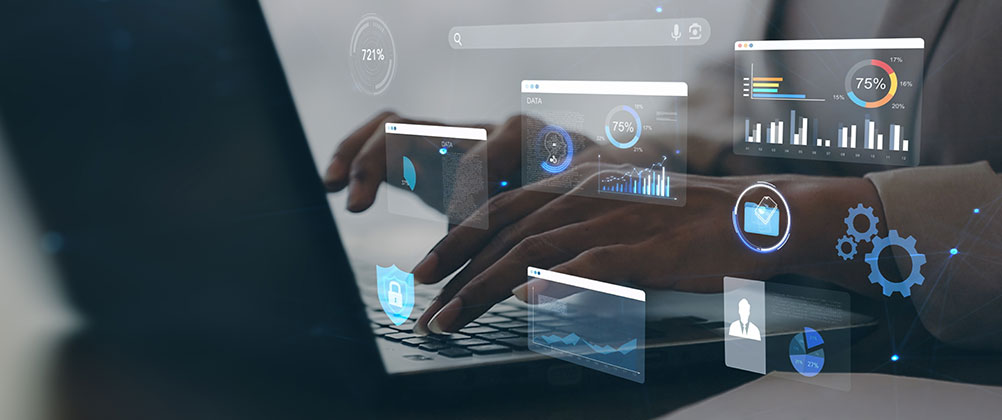How LMS for Hospitality is Transforming Employee Onboarding and Training

There has always been competition in the hospitality sector. Among the most significant issues are rising expenses, irregularities, and employee turnover. Managing and keeping a talented and skilled workforce is a challenge for even businesses with a turnover rate of over 70%. Can an LMS for hospitality improve employee onboarding and address these problems? You’ll learn everything you need to know from this blog!
Traditional methods of employee training are no longer successful in upskilling, empowering, and engaging employees. One-module-fits-all is not relevant in today’s customer-focused environment. Hospitality LMS software is becoming inevitable for hospitality firms today, enabling easy course assignments, quick performance tracking, effective training management, and more. Modern AI-powered LMS combines role-based models and on-the-job training for skill development.
The Learning Management System revolutionizes how workers are onboarded, trained, and managed. Here’s a deeper dive into how LMS for Hospitality is transforming employee onboarding!
Importance Of Employee Onboarding In Hospitality
It is not ideal to choose a formal onboarding program for new hires. It may result in increased employee turnover, disengagement, and lower productivity. On the other hand, a positive onboarding experience makes employees 69% more likely to stay for three years or more.
Employee onboarding in hospitality is vital for setting goals to achieve success. A strong onboarding process helps employees feel confident and deliver exceptional service. It also helps reduce turnover by ensuring employees feel supported in their roles. Proper onboarding can set a positive tone, boost morale, and enhance guest experiences. This is key in the competitive hospitality industry.
Top Employee Onboarding Challenges in Hospitality
The hospitality industry faces several challenges in training employees. Let’s check employee onboarding challenges for the hospitality sector:
- Service excellence & soft skills
- High employee turnover
- Diverse workforce & learning needs
- Compliance & safety training
Challenges That LMS Solves in Hospitality Onboarding
Streamlining Onboarding with Digital Access
When companies use traditional onboarding approaches, they need to schedule many meetings, extended paperwork, and instructor-led training sessions. It negatively impacts organizational productivity.
New employees using an LMS for hospitality can access their onboarding content anytime and anywhere. A hospitality LMS can help them access their training sessions without difficulty. The accessibility feature for training materials enhances operational flow while minimizing HR team administrative responsibilities. The LMS systems contribute to time reduction and establish better training environments for new employees, which results in enhanced operational efficiency.
Reducing Training Time and Costs
The implementation of traditional onboarding creates two major obstacles: timing and expenses. Trainers dedicate themselves to providing one-on-one training periods to all new employees as a requirement of in-person training. Training duration becomes longer, and organizational expenses grow higher when this approach is used.
On-screen access to training materials enables organizations to diminish traditional on-site workforce training requirements. An LMS makes it possible to decrease expenses associated with training costs and printed materials. Hospitality organizations can implement high-quality training standards as LMS programs can provide uniform training experiences.
Personalized Learning Paths
Individual organizational requirements along with personal learning preferences makes one-size-fits-all training ineffective. When training for new hires is not efficient, it leads to poor performance and worker dissatisfaction.
Through LMS for Hospitality software, staff members can follow their own customized learning paths. This method of training delivery suits the needs of employees performing specific roles in each department. Customized training helps organizations transform their workforce into seasonally skilled and effective professionals.
Real-Time Tracking
Tracking employee progress during onboarding is vital for identifying knowledge gaps. In traditional methods, manual tracking often creates errors and inefficiency. It leads to inconsistencies in progress reporting.
Hospitality LMS software allows managers to track employee progress in real time. It provides them instant access to performance metrics and improvement areas. With this data, businesses can address the issues before the time.
Engaging Training Content
Conventional training techniques, like using printed manuals, can get boring. Employee disengagement could result from it as well. Training in the hospitality sector needs to be dynamic and interesting.
Businesses can incorporate different kinds of interesting content, such as interactive modules and videos, using an LMS. It increases training engagement, which enhances memory of the material. Additionally, it fosters a culture of ongoing learning and raises employee retention rates.
Easy Scalability
As hospitality businesses grow and expand, the onboarding process should be enhanced. An LMS offers scalability that ensures consistency in training across all team locations to teams. Regardless of location, new employees can receive the same training experience. The scalability of an LMS helps businesses maintain a standardized training process.
Continuous Learning Beyond Onboarding
The first step in an employee’s journey is onboarding. Ongoing education is crucial to employee success and development, and opportunities for ongoing learning enhance employee retention.
An LMS serves as a useful instrument for continuous training. LMS ensures that staff members keep improving their abilities, whether through leadership development or customer service training. Employee engagement and motivation are maintained through regular access to fresh training materials. As a result, they become competent and prepared to handle the rigors of their positions.
Conclusion
Employee onboarding is an essential element of the hospitality industry. However, traditional methods are costly, time-consuming, and ineffective. Integrating hospitality LMS software like Skill Lake can be the best bet to overcome these challenges.
Such LMS software helps in the onboarding process and reduces training times. An LMS helps in creating engaging and personalized training programs, improving employee satisfaction and performance.
Businesses should adopt an LMS for employee onboarding to reduce employee turnover. The future of hospitality training is digital, and LMS solutions are a tool for thriving in this ever-evolving industry.
Skill Lake is the best LMS for the hospitality industry. The AI-powered LMS goes beyond outdated or traditional training methods. It offers personalized and data-driven training to boost employee engagement and development. Now, it is the time to rethink your workforce development to build a future-ready and skilled team.
No more traditional training methods! Skill Lake LMS can streamline your onboarding and training. Get started today!
Build a culture of continuous learning with Skill Lake’s state-of-the-art people development platform. Give your employees professional training to help them excel in their job roles and propel your business to greater efficiency and success.
Start Today

Aarathy Jayakrishnan
Aarathy is an e-learning professional and enthusiast with a keen understanding of learning and development concepts. She writes insightful content, unraveling the possibilities that e-learning holds, and strives to make education open for all.